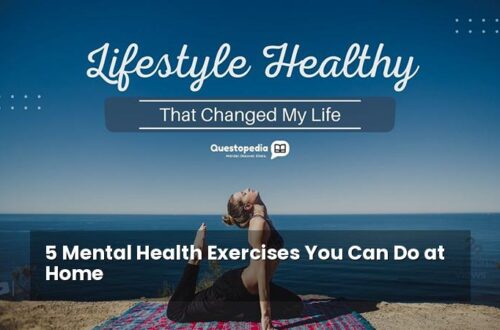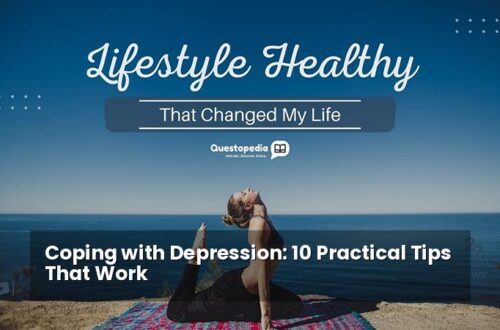The Best Diet Plans for Weight Loss in 2025
The year 2025 is just around the corner, and with it comes a renewed focus on health and wellness. For many, weight loss remains a top priority. But navigating the crowded landscape of diet plans can be overwhelming. Which ones truly work, and which are just fleeting trends? This article will delve into the best diet plans for weight loss in 2025, providing a researched and practical guide to help you achieve your goals safely and effectively. We’ll explore the scientific backing, benefits, and potential drawbacks of each plan, helping you make an informed decision that aligns with your lifestyle and preferences.
Understanding the Evolving Landscape of Dieting
Before diving into specific diet plans, it’s crucial to understand the evolving landscape of dieting. The focus is shifting away from restrictive, unsustainable approaches toward more holistic and personalized strategies. Factors like gut health, individual metabolic rates, and behavioral psychology are playing increasingly important roles in determining the best diet for weight loss. Moreover, technology is becoming more integrated, with personalized nutrition apps and wearable devices providing data-driven insights and support.
The Key Trends Shaping Weight Loss in 2025
- Personalized Nutrition: Tailoring diets to individual genetic makeup, microbiome composition, and lifestyle factors.
- Sustainable Eating: Prioritizing plant-based diets and reducing environmental impact. Consider exploring options aligned with the Planetary Health Diet.
- Mindful Eating: Focusing on savoring meals and recognizing hunger cues to avoid overeating.
- Intermittent Fasting Refinements: Optimizing fasting protocols based on individual responses and circadian rhythms.
- Emphasis on Gut Health: Recognizing the importance of a healthy gut microbiome for metabolism and weight management.
Top Diet Plans for Weight Loss in 2025: A Deep Dive
Here’s a look at some of the most promising diet plans expected to make waves in 2025, each with its unique approach and potential benefits.
1. The Mediterranean Diet: A Timeless Classic
The Mediterranean diet consistently ranks among the healthiest and most effective diets for weight loss and overall health. It emphasizes fruits, vegetables, whole grains, legumes, nuts, seeds, and healthy fats like olive oil. Lean protein sources like fish and poultry are consumed in moderation. Red meat and processed foods are limited. This diet is not only effective for long-term weight loss, but also offers numerous health benefits, including reduced risk of heart disease, type 2 diabetes, and certain cancers. For more information, you can visit the Oldways Mediterranean Diet Pyramid website.
Pros: Sustainable, nutritionally balanced, rich in antioxidants and healthy fats, promotes overall well-being.
Cons: Requires planning and preparation, may be slightly higher in fat than some other diets.
2. The Volumetrics Diet: Filling Up Without Packing On Pounds
The Volumetrics diet focuses on eating foods that are low in calorie density but high in volume, such as fruits, vegetables, and broth-based soups. This approach helps you feel full and satisfied while consuming fewer calories. The key is to choose foods with high water content and fiber. It’s a sustainable weight loss diet that can be easily incorporated into a variety of eating styles.
Pros: Effective for weight loss, promotes satiety, easily adaptable, encourages consumption of nutrient-rich foods.
Cons: Requires careful food selection, may require some initial planning.
3. Intermittent Fasting (IF): Timing is Everything
Intermittent fasting involves cycling between periods of eating and voluntary fasting on a regular schedule. There are several variations, including the 16/8 method (eating within an 8-hour window and fasting for 16 hours), the 5:2 diet (eating normally for five days and restricting calories for two days), and alternate-day fasting. IF has been shown to be effective for weight loss, improving insulin sensitivity, and promoting cellular repair. Research from sources like the Harvard School of Public Health supports its potential benefits.
Pros: Effective for weight loss, may improve insulin sensitivity and cellular repair, can be adapted to various lifestyles.
Cons: May not be suitable for everyone (e.g., pregnant women, people with certain medical conditions), can cause side effects like headaches or fatigue initially.
4. The Flexitarian Diet: Plant-Based with Flexibility
The Flexitarian diet is a primarily plant-based diet that allows for occasional consumption of meat, poultry, and fish. This approach offers the benefits of a vegetarian diet without the strict restrictions, making it a more sustainable and appealing option for many people. It emphasizes fruits, vegetables, whole grains, legumes, and nuts, while limiting processed foods and added sugars. It’s a healthy diet choice for people looking to improve their health and lose weight.
Pros: Sustainable, flexible, offers the health benefits of a plant-based diet, easy to follow.
Cons: Requires planning to ensure adequate nutrient intake, especially iron and vitamin B12.
5. Keto 2.0: A More Sustainable Ketogenic Approach
While the traditional ketogenic diet (high-fat, very low-carb) has been popular, “Keto 2.0” focuses on making it more sustainable and nutritionally balanced. This involves incorporating more non-starchy vegetables, diversifying fat sources, and emphasizing whole, unprocessed foods. This version helps people to achieve ketosis while minimizing the potential negative side effects and nutritional deficiencies of the standard ketogenic diet. It’s still a weight loss plan, but with greater focus on long-term health.
Pros: Can be effective for rapid weight loss, may improve blood sugar control.
Cons: Can be restrictive, may cause the “keto flu” (fatigue, headaches, nausea), requires careful monitoring of macronutrient intake, may not be sustainable long-term. Requires medical supervision in some individuals. Consult your physician prior to commencement.
Beyond the Diet: Essential Elements for Success
Regardless of the specific diet plan you choose, several essential elements contribute to successful weight loss:
1. Exercise and Physical Activity
Regular physical activity is crucial for burning calories, building muscle mass, and improving overall health. Aim for at least 150 minutes of moderate-intensity aerobic exercise or 75 minutes of vigorous-intensity aerobic exercise per week, along with strength training exercises at least twice a week.
2. Stress Management
Chronic stress can lead to increased cortisol levels, which can promote weight gain, particularly around the abdomen. Incorporate stress-reducing activities into your routine, such as yoga, meditation, spending time in nature, or engaging in hobbies you enjoy.
3. Adequate Sleep
Lack of sleep can disrupt hormones that regulate appetite and metabolism, leading to increased cravings and weight gain. Aim for 7-9 hours of quality sleep per night.
4. Hydration
Drinking plenty of water throughout the day can help you feel full, boost metabolism, and aid in weight loss. Aim for at least 8 glasses of water per day.
5. Behavioral Modification
Addressing underlying emotional or behavioral patterns that contribute to overeating is essential for long-term success. Consider working with a therapist or counselor to develop healthy coping mechanisms and strategies for managing cravings and triggers.
Conclusion: Choosing the Right Diet for You
The best diet plan for weight loss in 2025 is the one that you can stick to consistently over the long term and that aligns with your individual needs, preferences, and lifestyle. Focus on making sustainable changes that promote overall health and well-being, rather than chasing quick-fix solutions. Remember to consult with a healthcare professional or registered dietitian before starting any new diet plan, especially if you have any underlying health conditions. By combining a balanced diet with regular exercise, stress management, and adequate sleep, you can achieve your weight loss goals and improve your overall quality of life. Also, check out Questopedia for more articles on health, wellness, and fitness. Wishing you all the best in your weight loss journey!






